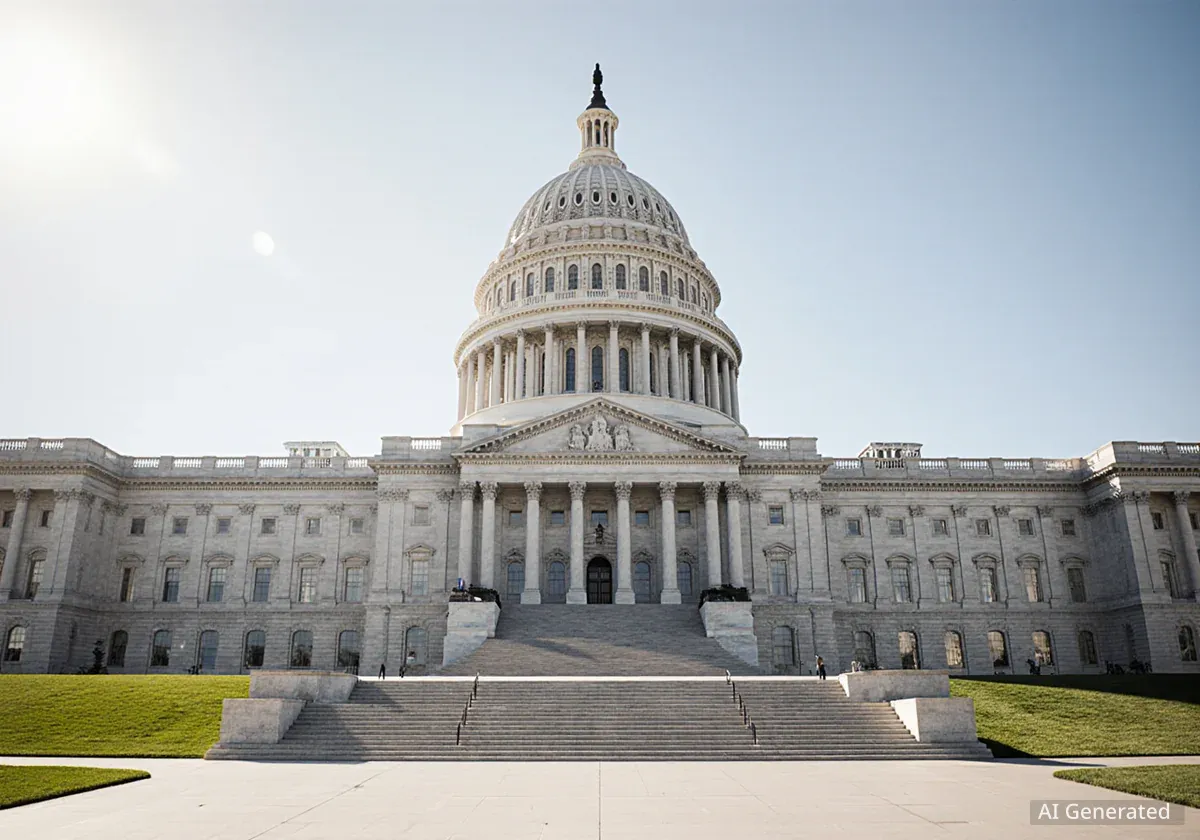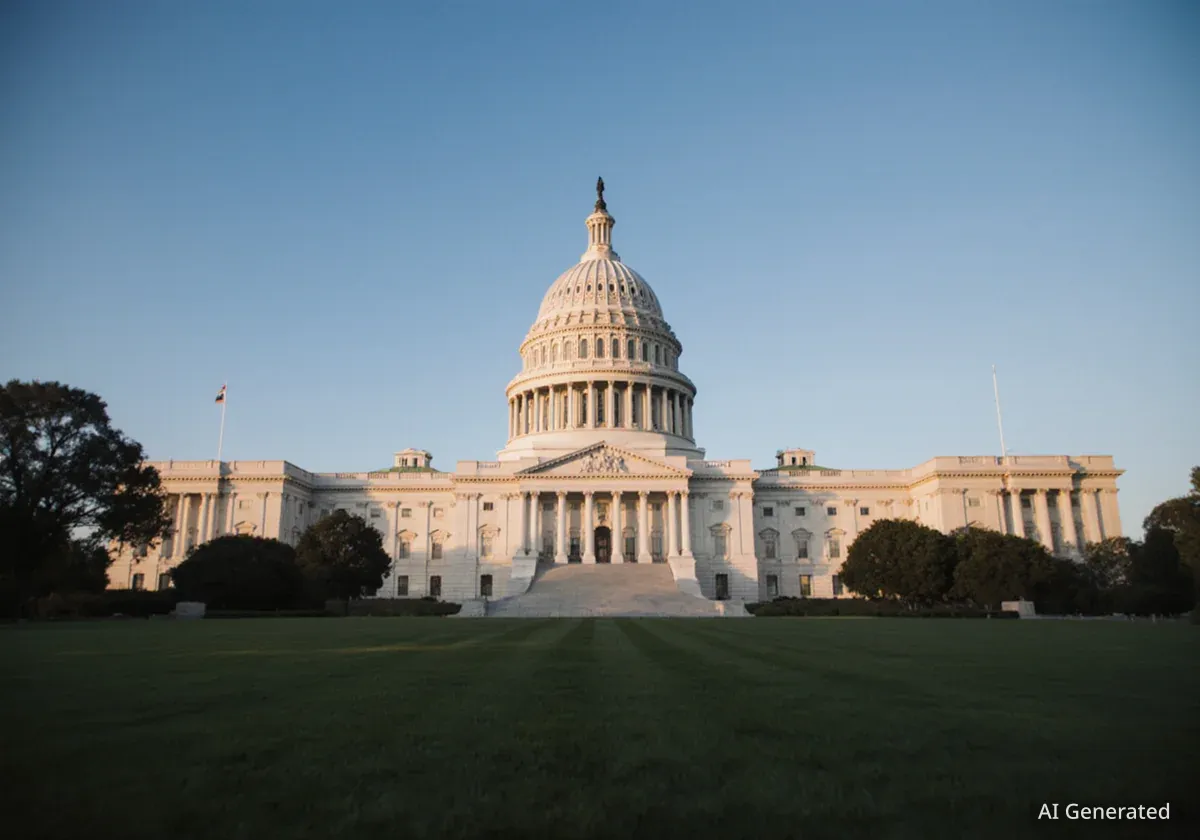Federal agencies have submitted a formal request for extensive voter registration and long-term real estate data from Dutchess and Putnam counties in New York. The request, which covers several years of information, is part of a broader federal initiative to analyze demographic shifts and economic patterns in key suburban areas across the United States.
Local officials in both counties are currently reviewing the scope and legal implications of the data request. The outcome of this review could set a precedent for how local governments handle large-scale information requests from federal bodies, particularly those involving sensitive resident data.
Key Takeaways
- Federal agencies are seeking multi-year voter registration and real estate transaction records from Dutchess and Putnam counties.
- The stated purpose is to conduct a detailed analysis of demographic trends and housing market dynamics in suburban regions.
- Local officials are examining the legal requirements and privacy concerns associated with fulfilling the data request.
- The request has raised questions among residents and privacy advocates about data security and government oversight.
Details of the Federal Data Request
The formal request specifies a wide range of information. For real estate, agencies are seeking anonymized data on property sales, including transaction dates, sale prices, property types (single-family, multi-family, commercial), and general location information by zip code. The period of interest spans from 2010 to the present day.
On the voter data side, the request asks for historical registration statistics. This includes the number of registered voters by party affiliation, new registrations, and changes in registration status over the same multi-year period. Officials have emphasized that the request does not seek personal identifying information of individual voters, such as names or specific addresses.
Understanding Data Aggregation
Government agencies often use aggregated and anonymized data to build economic and social models. By combining housing market data with voter registration trends, analysts can study patterns like population growth, political shifts in suburban areas, and the economic health of a region. This information is often used to inform federal housing policy, infrastructure funding, and economic forecasts.
A spokesperson for one of the involved federal departments stated the goal is to create a more accurate picture of suburban development. The data will reportedly be used for statistical analysis only and will contribute to national reports on housing affordability and population migration.
Local Government Response and Concerns
County executives in both Dutchess and Putnam have acknowledged receipt of the request and have tasked their legal departments with a thorough review. A primary concern is ensuring compliance with New York State laws governing the privacy and handling of resident data. While much of the requested information is technically public record, compiling and transferring it on this scale is an unusual undertaking.
Dutchess County Clerk Bradford Kendall noted the complexity of the request. He explained that while property sale information is public, voter registration data is subject to stricter state election laws. "We must ensure that any data we share is fully compliant with state statutes and protects the privacy of our residents," Kendall stated in a press release.
"Our first priority is to protect the privacy of our citizens while also adhering to our legal obligations. This is a comprehensive review process, and we will not proceed until all legal and ethical questions are answered."
Similarly, officials in Putnam County are proceeding with caution. The county's Board of Elections is working with legal counsel to determine exactly what information can be legally shared and in what format. The process is expected to take several weeks.
Implications for the Housing Market and Residents
The federal interest in these counties highlights their significance as bellwethers for suburban trends in the Northeast. Both Dutchess and Putnam have experienced notable shifts in their housing markets over the past decade, including rising property values and an influx of new residents from New York City, a trend that accelerated significantly after 2020.
Hudson Valley Real Estate Snapshot
- Median Home Price (Dutchess): Increased by over 35% between 2018 and 2023.
- Population Growth (Putnam): Saw a notable increase in residents under 40 during the last five years.
- Market Activity: Both counties have consistently reported lower-than-average housing inventory, contributing to competitive market conditions.
Real estate analysts suggest the federal study could have long-term implications. The data collected might influence future federal housing initiatives, transportation funding, and economic development grants for the region. If the analysis identifies these counties as areas of rapid growth and housing strain, it could lead to targeted federal programs aimed at improving infrastructure or promoting affordable housing.
However, the request has also sparked a debate among residents and privacy advocates. Some community groups have voiced concerns about the potential for data misuse, even if it is anonymized. They are calling for transparency from county officials about the review process and the specific safeguards that will be put in place to protect resident information.
The National Context for the Data Initiative
This request is not happening in a vacuum. According to policy experts, it is part of a larger, nationwide effort by the federal government to better understand post-pandemic demographic changes. Suburban and exurban counties across the country have seen dramatic shifts, and federal agencies are trying to catch up with these evolving trends.
Key Areas of Federal Study
- Remote Work Impact: Analyzing how the rise of remote work has affected housing demand and prices in areas outside of major urban centers.
- Infrastructure Needs: Identifying growing communities that may require increased federal investment in transportation, internet access, and public utilities.
- Political Realignment: Studying how demographic changes in suburban areas are influencing national and local political landscapes.
The findings from Dutchess, Putnam, and other selected counties will likely be aggregated into a national report scheduled for release late next year. This report could shape policy decisions for years to come, affecting everything from mortgage lending regulations to the allocation of federal resources for community development.
For now, the focus remains on the local level, as officials in the Hudson Valley navigate the complex legal and ethical landscape of this significant federal data request. Their decisions will be watched closely by other municipalities across the state and the nation.





